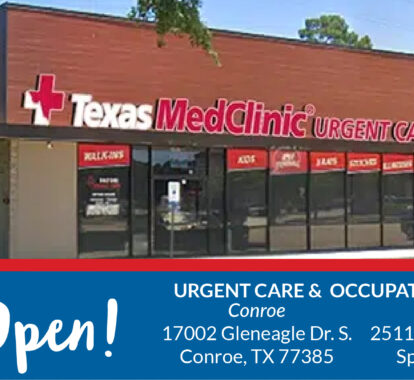Don’t go to a freestanding ER if you have the flu; it could cost you $2,000
June 8, 2017

By Bernard Swift, JR. DO, MPH / CEO, Founder of Texas MedClinic
The Rice University study “Freestanding Emergency Departments in Texas deliver costly care, sticker shock” released in March confirms what leaders in the emergency and urgent care industries have known for several years: Freestanding emergency rooms (FSER) charge 10 – 15 times more than urgent care clinics (UCCs) for treatment of similar problems.
The study noted that in 2015, the total price of a FSER visit averaged $2,199 versus $168 for an UCC.
The study also noted that 15 of the 20 most common diagnoses such as flu, strep throat and upper respiratory infections that are treated at FSERs were also in the top 20 treated in an UCC. In other words, those are simple problems for which care can be handled for less cost at an UCC.
FSERs lack of transparency leads to consumer confusion when choosing the most appropriate venue for urgent health care services at a reasonable cost. This is very disconcerting for consumers and payers alike, and needs to be addressed by legislators, insurance companies, employers and consumers.
As a physician and Chief Executive Officer for UCCs located throughout South Central Texas, I believe there should be transparency and accountability for all medical providers. We all provide a resource to the communities we serve. However, consumers need to be aware of the differences between urgent and emergency care and the costs associated with each.
The cost of a visit to an UCC is less than a visit to a hospital-based emergency room (HBER) or FSER for several reasons:
- HBERs invest in specialty equipment and staff that can care for life-threatening illnesses or trauma and can move patients rapidly and seamlessly towards definitive care. A large facility fee is charged to all patients, regardless of the severity of the problem;
- HBERs and FSERs have an “emergency” approach to all medical problems, generally resulting in extensive and costly “mega” work-ups, even for relatively simple problems.
- FSERs exploit a provision in the law that allows them to charge an expensive facility fee (just like a HBER) for simple urgent type problems.
To make matters worse for consumers, FSERs are not connected to or located within a full-service hospital. While their fees are just as high as those found in a HBER, they suffer from a lack of proximity to state-of-the-art definitive care services for problems like stroke, heart attack, or trauma requiring immediate surgery. All these more serious patients must be transported to a hospital with the attendant delay, thereby generating additional cost and medical risk.
The presumption that care is the same at a FSER and a HBER is false and, at the very least, misleading. FSERs are more like UCCs. While they are required to maintain much of the equipment and staffing that a HBER does, they don’t have rapid and seamless availability of definitive treatments in a true emergency. Thus, a need for a cath lab, stroke center, or surgical suite always necessitates transfer to a hospital, thereby wasting precious time.
And, in a true emergency, it is time that is the most critical component to receiving quality care.
FSERs need to shoot straight and be transparent about the limitations on the care, and the costs of that care, thereby allowing consumers to choose what is best for their family’s health care and pocket books. While employees may not concern themselves with these higher costs if their insurance pays for a HBER or FSER visit, they should know that their employers are the ultimate payers. The high costs ultimately result in reduced salaries.
All employees, patients and their families have a responsibility to themselves and their employers to understand the differences between costs and services provided at HBERs, FSERs and UCCs to ensure they receive the appropriate care for the best value.
Because, I am pretty sure most do not want to pay $2,000 for the flu.
###
Dr. Bernard Swift is the founder and managing partner of Texas MedClinic, a chain of 17 urgent care clinics located in San Antonio, New Braunfels and the Austin area.




